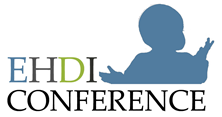| ABSTRACT INFORMATION |
| Presenter Information: |
| Presenter 1: |
Name: Barbara Raimondo
Affiliation: National Association of the Deaf
Barbara Raimondo, Esq. has many years’ experience advocating for the rights of deaf and hard of hearing people. She began her career at the National Center on Law and Deafness, which later became part of the National Association of the Deaf Law and Advocacy Center. She was associated with the American Society for Deaf Children for 12 years, first as a board member, then as a staff member. She has keynoted many national conferences has presented to audiences nationally and internationally. She has participated in many national coalitions and has published articles and book chapters in numerous publications. She has testified before Congress.
In her volunteer time, she serves as President of the Maryland School for the Deaf Board of Trustees.
Barbara received her law degree from George Mason University. She and her husband are the parents of two deaf children.
|
|
| Author Information: |
| Author 1: |
Name: Barbara Raimondo
Affiliation: National Association of the Deaf
|
|
| Abstract Information: |
| Title: |
Today’s Issues in Advocacy for Deaf and Hard of Hearing Persons |
| Primary Track: |
6-Family Issues
|
| Keyword(s): |
accessibility, civil rights, legislation |
Abstract: |
Cora’s dance teacher speaks into an FM system so that Cora can hear her instructions.
Manual likes to watch Saturday morning cartoons. He can follow what is going on because the cartoons are captioned.
Robert went to story time at the local library last week. The library provided a sign language interpreter so that he could enjoy the story along with the other kids.
As a result of Federal law, today’s deaf and hard of hearing children have better access to the world than ever before. The Americans with Disabilities Act protects the civil right of deaf and hard of hearing people to have effective communication. The Telecommunications Act requires video programming to be accessible through captions. The Architectural and Transportation Barriers Compliance Board rules require telephones to be accessible, such as through the use of enhanced volume. Many Federal laws and policies are in place to ensure communication access for deaf and hard of hearing individuals. This session will review the history of civil rights to access, highlight laws ensuring access, and explain how to seek a remedy when these laws are violated. The session will be geared towards families with deaf and hard of hearing children and professionals who work with them. It will give them tools they can use to ensure that deaf and hard of hearing children have communication access in our world. |
| Presentation(s): |
Not Available
|
| Handouts: |
Not Available
|
|

